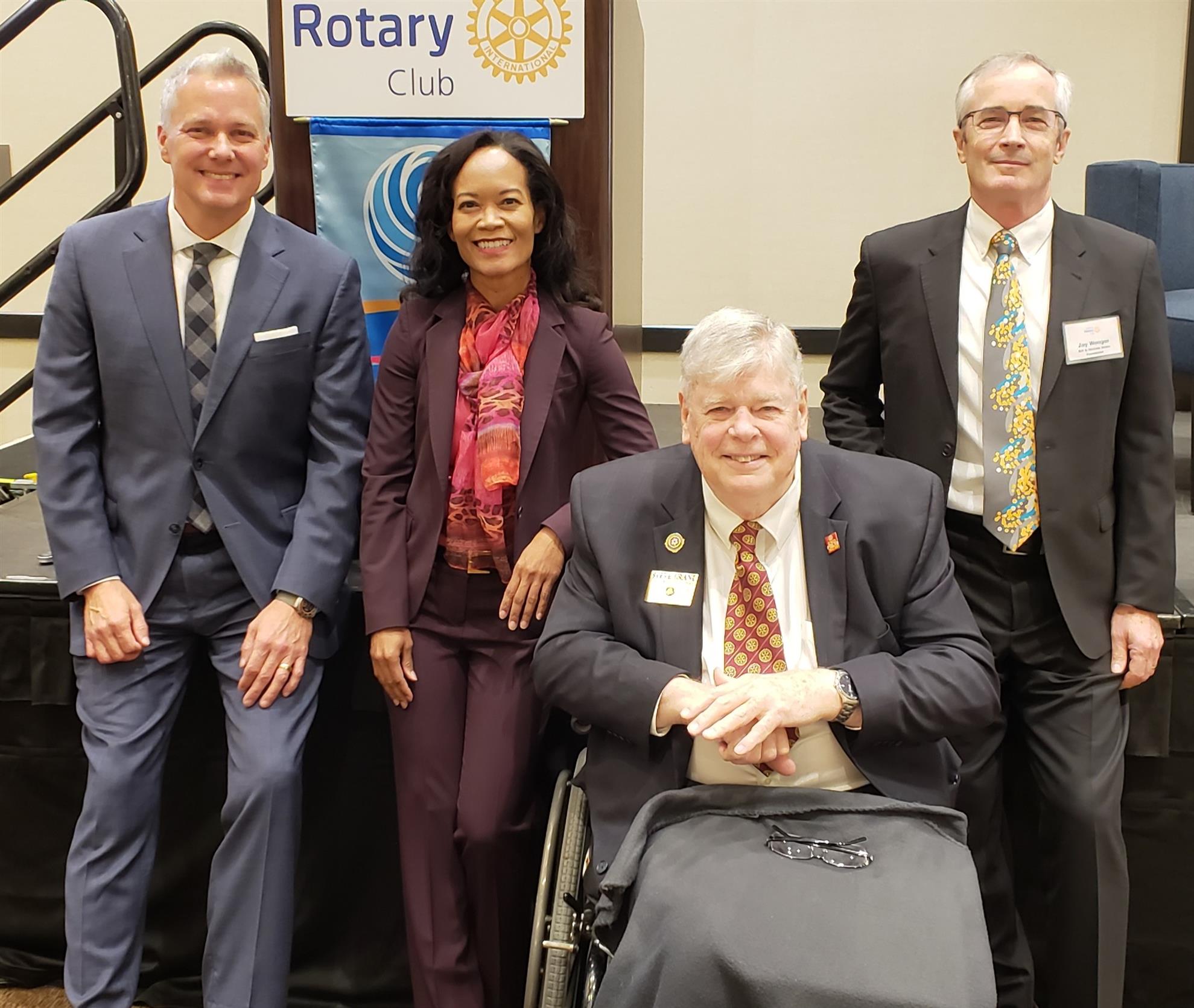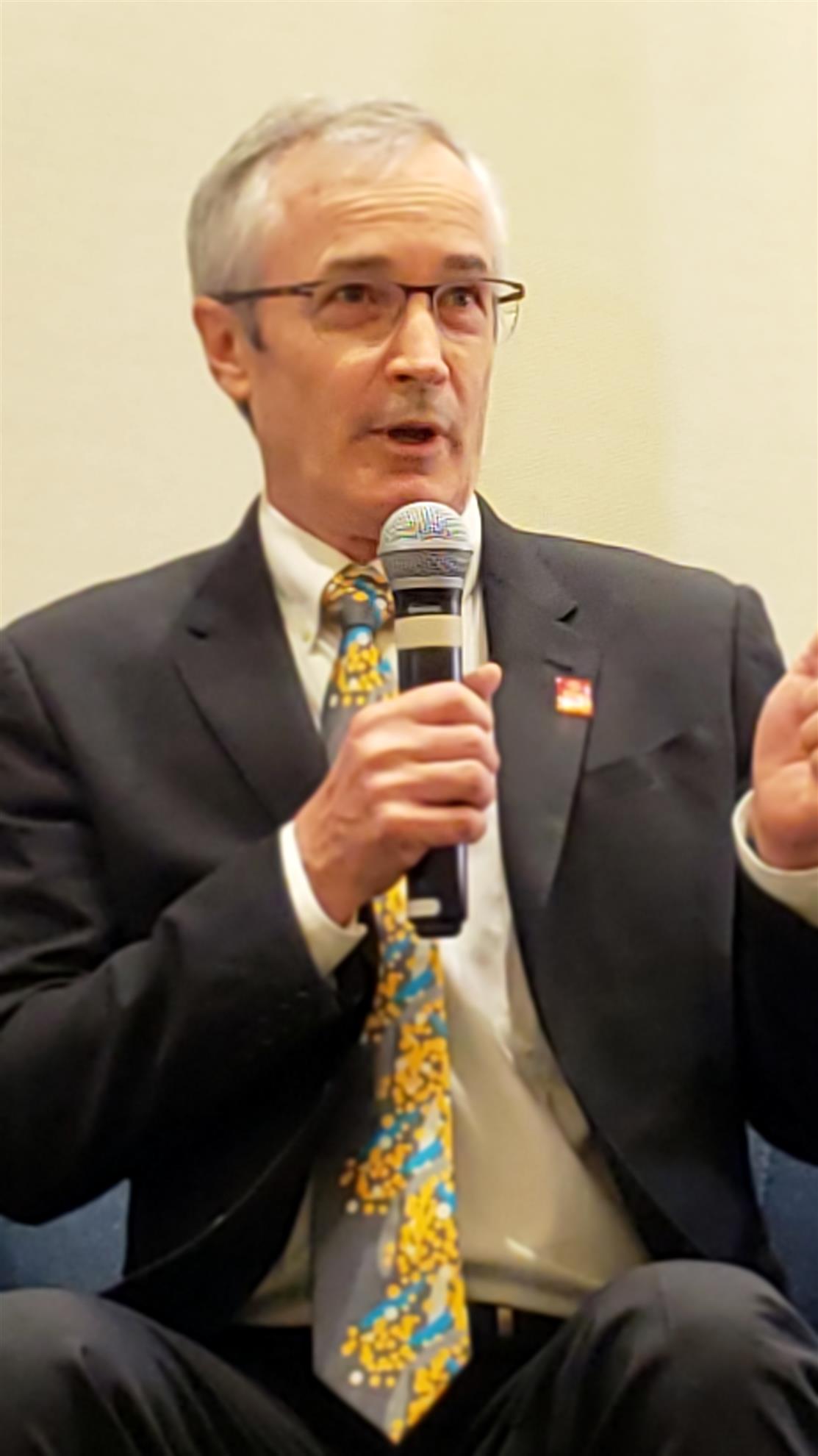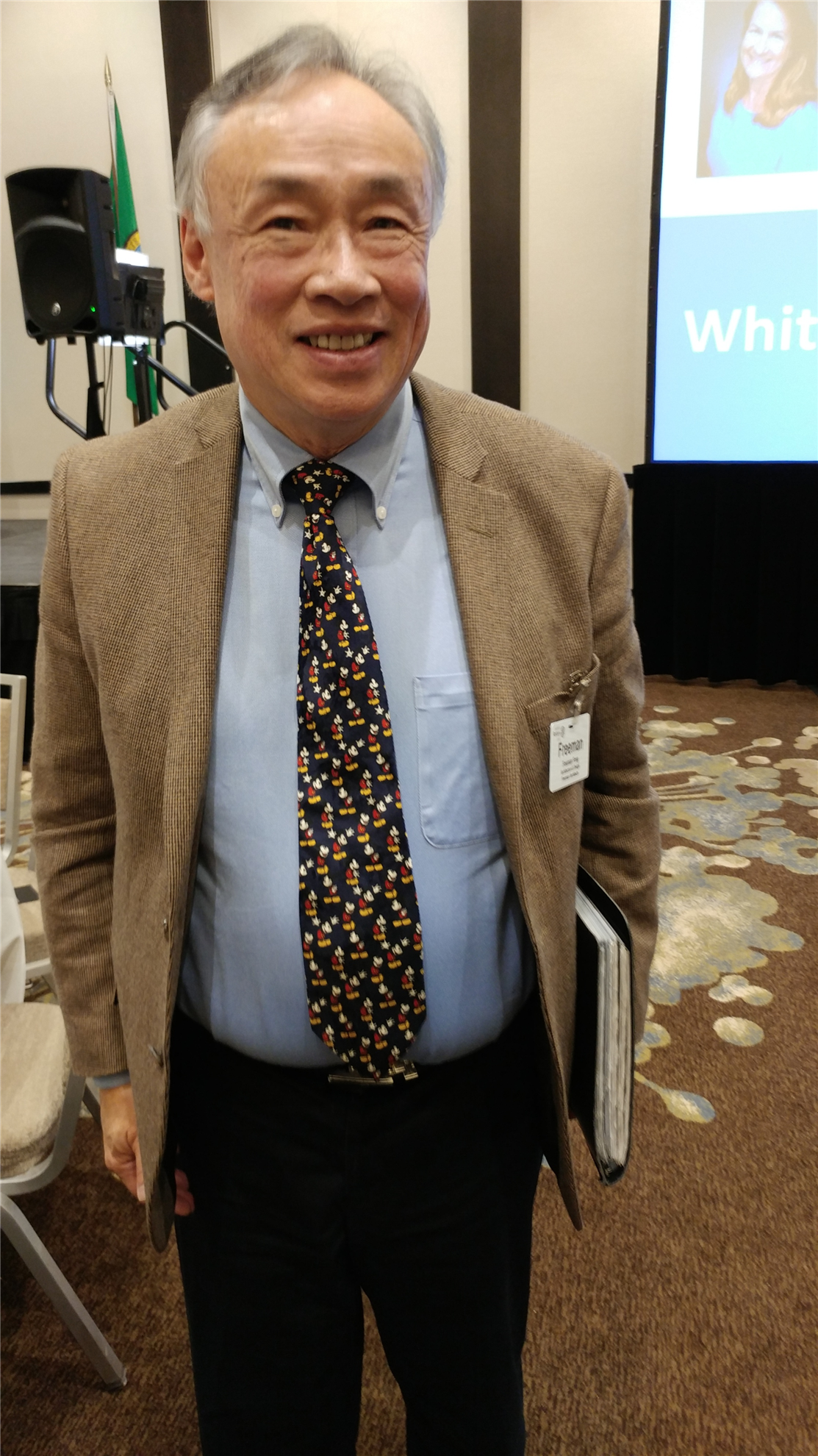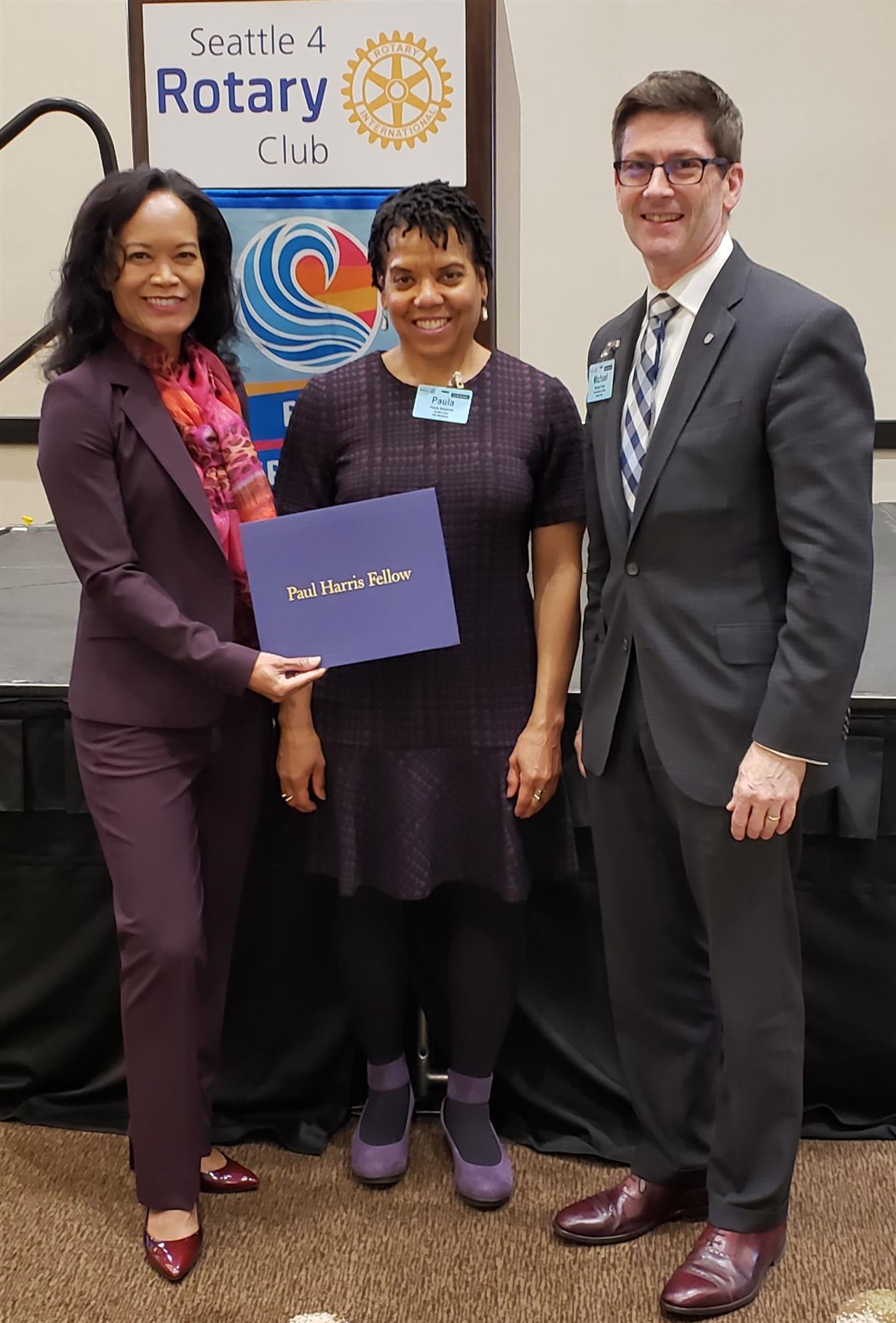 If polio had a collective consciousness, it might sense its pending demise.
If polio had a collective consciousness, it might sense its pending demise. No matter. Poliovirus only survives in the environment a matter of days or weeks. It is only transmitted by humans, mostly through their waste. If people cannot be infected, the virus will die out.
And the vaccination strategy built on these facts is working, stunningly. Wednesday, October 24 was the sixth annual World Polio Day and Rotary Clubs the world over paused to review progress. At Seattle 4, Past President and former competitive college bowler Mark Wright interviewed Dr. Jay Wenger, who heads the Bill & Melinda Gates Foundation effort to help eradicate polio.
Consider this: Thirty years ago, more than 1,000 children a day were being paralyzed by polio – more than 350,000 a year, almost all in the developing world.
 So far this year, there have been six children stricken in Pakistan and 16 in Afghanistan.
So far this year, there have been six children stricken in Pakistan and 16 in Afghanistan. That’s it. 22 cases so far this year, and 22 in all of last year. Although Nigeria is still considered to have not fully eradicated the virus, it has recorded zero cases in three of the last four years. Today, polio is more than 99.9% eradicated.
Consider further: Rotary International estimates 16 million people today are walking who would have otherwise been paralyzed, and that a polio-free world will save the global economy $40-$50 billion in health costs within the next 20 years.
In 1985, Rotary International launched PolioPlus, pledging the might of its global network and $120 million dollars to fight polio. It was the world’s first and the largest privately-supported effort to back a public health campaign.
Three years later, the Global Polio Eradication Initiative launched, linking Rotary International with the World Health Organization, the U.S. Center for Disease Control, and UNICEF. “Rotary played a huge role in pushing this forward,” Dr. Wegner explained.
In 2007, the Bill & Melinda Gates Foundation joined. “Bill saw this as an opportunity to give a gift to the world. We had the tools, we had the capacity, and we got behind it,” Wegner said.
Wright asked Rotarians who had helped deliver vaccines somewhere in the world to stand and be recognized. More than a dozen were present. “That speaks to the power Rotary brings to this fight,” he observed. “1.2 million members, 37,000 clubs. Everywhere there’s polio, there’s a Rotary Club.”
“I witnessed this in India,” Wegner said, “in the five years I oversaw the polio eradication effort there. Rotarians talked to their Governors and the Prime Minister and said, ‘This is important. We have to do this.’ They were a key ally.”
“And in the United States,” Wegner said, “Rotary played a huge role in carrying the message of the importance of polio eradication to legislators on both sides of the aisle. And of course Rotary’s financial support has been critical. Now, the Gates Foundation and Rotary are making sure we see the program through to the end.” (With the Gates Foundation match, the two entities are contributing about $300 million a year.)
Since the initiative launched in 1988, 20 million volunteers in more than 200 countries have immunized more than 2.5 billion children against polio, relying on international investment of more than $11 billion. Immunizations peaked in 2001, reaching 575 million children in 94 countries.
Today the effort has a far more sophisticated approach, aided by satellite mapping of remote villages, DNA testing of water and sewage in the remaining hot spots, and even cell phone apps to help health workers constantly on the search for the virus.
Even with that success, thorny challenges remain.
Some areas of Afghanistan and Pakistan with remaining cases are remote, rugged, abutting border areas with migratory tribal groups, so there are complex logistical difficulties. On top of that, this and other remaining areas in Southern Afghanistan are largely controlled by what Dr. Wegner diplomatically called “anti-government elements.” Not only is there warfare, but access has to be negotiated, assuming you can find who is in charge.
But even with access, there is distrust. Distrust needs its own antidote. The WHO’s monthly polio report on Afghanistan for September 2018 tells this story:
‘Amil Khar’s left leg became paralyzed by the polio virus when he was two years old. Amil is twenty now, and a social mobilizer for polio campaigns in his district. Walking is not easy for Amil, but he’s not deterred by his disability. He is passionate about making people aware of the dangers of polio and its lifelong impact on survivors.
‘Three days before each campaign, Amil visits each family in his village. He knocks on every door and informs the parents the time of the campaign, and urges them to vaccinate their children. During the campaign, he accompanies vaccinators to convince families who have doubts about vaccinating their children.
“I tell parents to accept the vaccines,” Amin says. “I tell them I wish my father had allowed me to be vaccinated. If he hadn’t refused, I would not have this lifelong disability.”
So, in polio’s last days, lurking in these remote, resistant places, Amil and others like him may be the final step in extirpating the scourge of polio. With all that technology, all that money, and all that institutional focus, in the end the decisive factor may be human compassion – as it began, when Rotarians around the world stepped up to a cause bigger than themselves.
 As Bill Gates put it, “Getting to zero is incredibly inspiring as an achievement of humanity.”
As Bill Gates put it, “Getting to zero is incredibly inspiring as an achievement of humanity.” Wright told the club that his interview of Dr. Wegner was being live-streamed on KING5.com and the KING 5 Facebook page. Further, he said that as part of its World Polio Day events, Rotary International would live-stream an interview he conducted with a senior program officer at the Gates Foundation.
At the beginning of the program, Michael Troyer provided the weekly inspiration and Jimmy Collins and accompanist Freeman Fong set the theme with the Disney song It’s a Small World. Fong rocked a Mickey Mouse tie.
President Cindy conducted a drawing among recent new member recruiters for a $250 Simon Gift Card provided by Northgate Mall, won by Harvey Rubinstein. She also recognized Paula Houston and Michael Troyer with Paul Harris Fellow pins for their contributions to the Rotary International Foundation.

